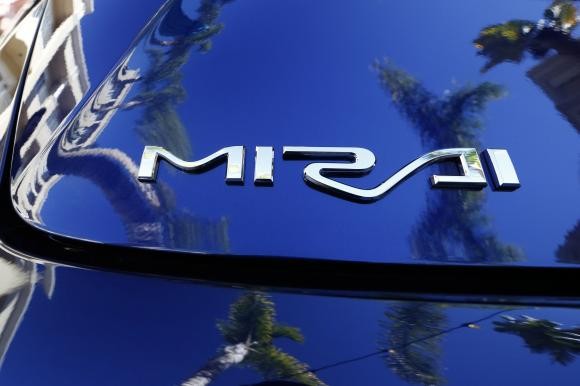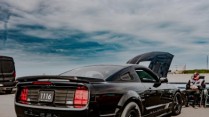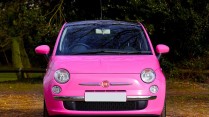Toyota aims to replicate Prius success with fuel cell Mirai
By NICHOLA GROOM AND CHANG-RAN KIM
Nov 18, 2014 11:06 AM EST

(Photo : REUTERS/LUCY NICHOLSON)
Toyota Motor Corp (7203.T) will introduce its first mass-market fuel cell car next month, hoping to replicate the success of its Prius hybrid with a vehicle that runs on hydrogen instead of gasoline.
The four-seater sedan, named Mirai, the Japanese word for "future", will first go on sale in four cities in Japan on Dec. 15. Sales in the United States and Europe will follow in the fourth quarter of 2015, the world's biggest automaker said, unveiling the car simultaneously in California and Tokyo.
The ultimate "green car", fuel cell vehicles (FCVs) run on electricity made by mixing hydrogen fuel and oxygen in the air - a technology first used in the Apollo moon project in the 1960s. Its only by-product is heat and water - water so pure the Apollo astronauts drank it.
"This technology is going to change our world," Toyota Managing Officer Satoshi Ogiso said at the launch in Newport Beach.
Mirai will cost 6.7 million yen ($57,460) before taxes in Japan, which on Tuesday announced a subsidy of 2.02 million yen on FCV purchases.
In the United States, it will cost $57,500, which could drop to $45,000 after federal and state incentives.
Toyota aims to sell just 700 globally next year, mainly due to a dearth of hydrogen fuel stations, executives said. It expects cumulative U.S. sales to reach 3,000 by the end of 2017.
Toyota Chairman Takeshi Uchiyamada, who led development of the first-generation Prius, said he expected global sales to rise to "tens of thousands" in the 2020s.
A day earlier, Honda Motor Co (7267.T) unveiled a pre-production version of its first mass-market FCV in Tokyo but stopped short of giving a price or sales target.
Honda, which with Toyota launched the world's first road-ready FCVs in December 2002, pushed back its estimated sales start in Japan to the year ending in March 2016 from the original 2015, citing overall delays in vehicle development due to quality problems. It now expects U.S. sales to start no earlier than March 2016.
Honda's yet-to-be named fuel-cell sedan seats five and has a range of over 700 km (435 miles), while Mirai can go 650 km on a full tank under Japanese standards.
Copyright @ MOTORTIMES, All rights reserved. Do not reproduce without permission.








